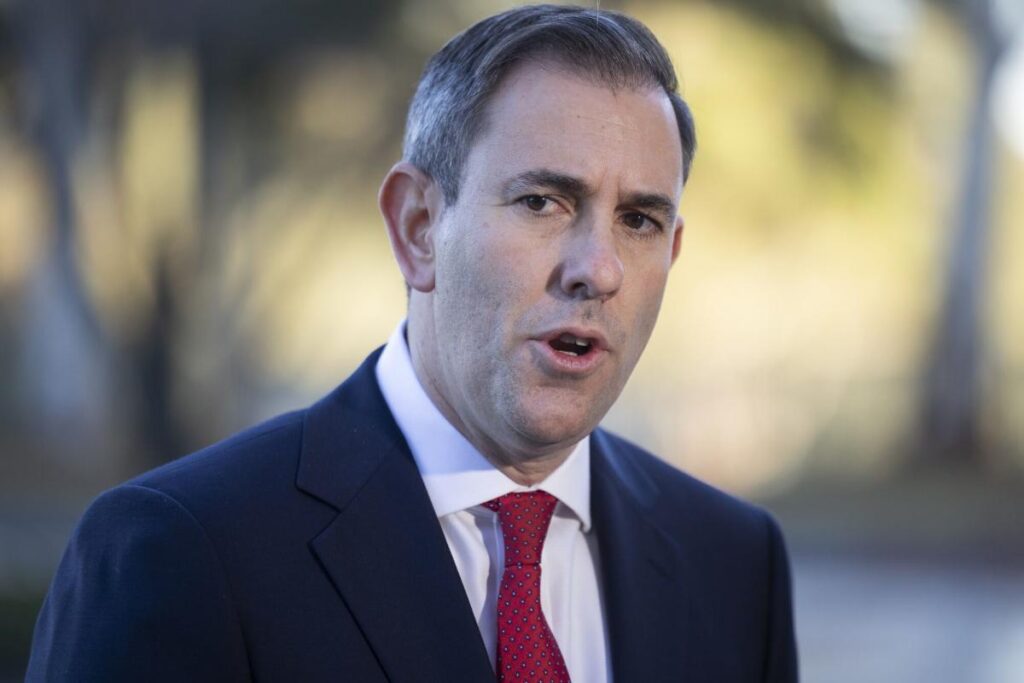Australia’s economic landscape is poised for potential upheaval in the wake of Donald Trump’s return to the U.S. presidency, according to Treasurer Jim Chalmers. In recent statements, Chalmers emphasized that while Australia may experience a slight decrease in output and added inflationary pressures, the country’s robust economic characteristics may shield it more effectively from the fallout than other nations. He noted the difficulty in anticipating the timing and implications of these changes, referring to the “second-round effects” that economists often highlight. Chalmers expressed concern over the possibility of escalating trade tensions stemming from Trump’s policy decisions, which could affect Australia significantly despite its relative resilience.
In preparation for this new political climate, the Australian government has sought to establish connections with Trump’s team well before the election outcome solidified. Chalmers and Foreign Minister Penny Wong have both engaged with influential figures linked to Trump’s administration, including discussions with former Secretary of State Mike Pompeo and potential treasury secretary Scott Bessent. This proactive approach aims to mitigate any shocks or drastic responses reminiscent of the immediate aftermath of Trump’s previous election victory in 2016, which left many nations scrambling to reassess their diplomatic strategies.
Recognizing the complexities tied to the U.S. political landscape, the Australian government undertook modeling through its Treasury department to gauge the possible impacts of either a renewed Trump administration or the election of Vice President Kamala Harris. Chalmers affirmed that Australia is “well placed and well prepared” for the upcoming changes in U.S. policy direction. However, the center-left Labor party, currently in power, faces its own set of challenges as it heads toward an election within the next six months. Changes in the economic climate could play a decisive role in shaping voter sentiment and ultimately influence the party’s fortunes at the ballot box.
A recent Newspoll has indicated growing voter dissatisfaction leading to the Labor party trailing behind the Liberal-National coalition by a margin of 49% to 51%. This sentiment is primarily driven by the public’s frustration over persistent inflationary pressures, soaring housing costs, and interest rates that have reached a peak not seen in 13 years. These economic challenges represent a threat not only to the Labor party’s standing in the upcoming elections but also to overall public sentiment regarding government efficacy in managing pressing financial issues.
The implications of international relations and domestic economic conditions are interlinked in this context. Economic modeling done by the Treasury highlights the interconnectedness of global economies and Australia’s reliance on trade relations. Chalmers stresses the potential for disruptions in trade policies under Trump’s leadership, which could result in unpredictable conditions for Australian businesses and consumers alike. This could manifest as increased costs for goods and materials, further complicating the existing situation of high inflation and interest rates.
In summary, Australia is bracing for the repercussions of Donald Trump’s election as President of the United States, anticipating short-term economic challenges that could include reduced output and heightened inflation. Chalmers and the government are taking a proactive approach to establish connections with the new administration to better navigate potential trade tensions. However, with the domestic political landscape becoming increasingly tenuous for the Labor party amidst economic challenges, the government’s ability to manage these issues effectively will be crucial as they seek to maintain their position in a rapidly evolving political and economic environment.

